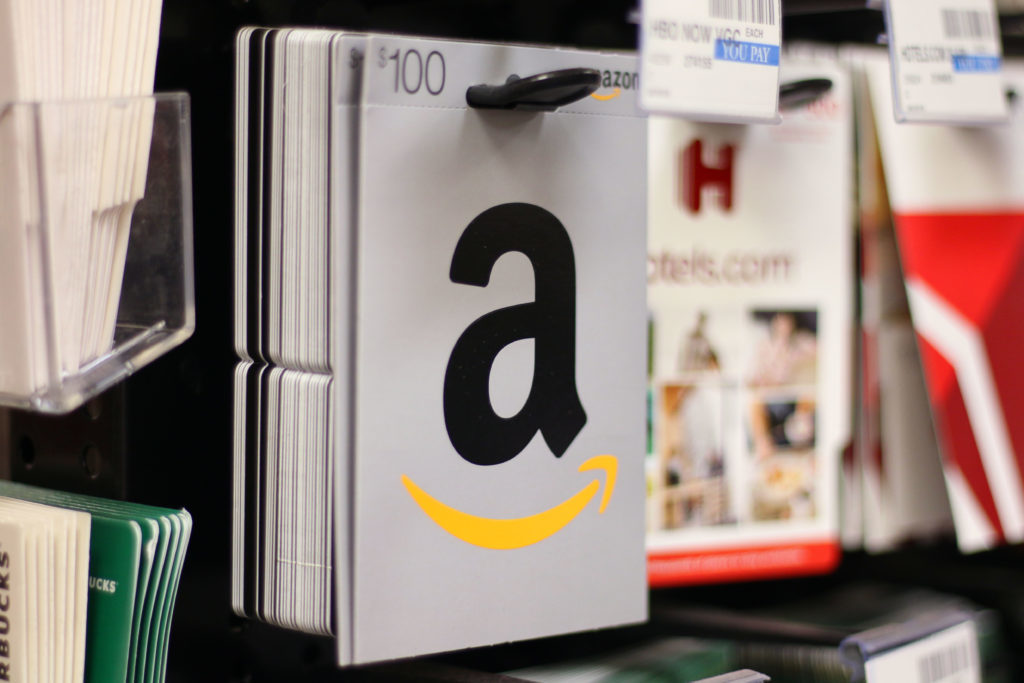Officials are offering more than $2,000 in gift cards and merchandise to encourage more students to participate in an academic advising survey.
The academic advising office sent an email to students last week pushing them to fill out a survey about students’ experiences with their advisers. Officials and experts said adding the incentives – like a $200 Southwest Airlines gift card, $100 Amazon gift cards and dozens of GW coffee mugs and water bottles – will help boost participation and response rates, which can improve the quality of the data used to make changes to advising services.
Cheryl Beil, the associate provost of academic planning and assessment, said the undergraduate academic advising offices in each school collaborated with the Office of Survey Research and Analysis to conduct the survey. She said officials decided to offer a “small incentive” to boost participation to “a level we need to get reliable results.”
Beil said that to date, the academic advising survey has a near 40 percent response rate, compared to a typical 25 to 30 percent.
“While this difference may be in part attributable to the incentive, we assume that part of this high response rate is a desire students have to have input in ensuring a high-quality advising system,” she said.
She said officials have been sending more surveys recently as they aim to gather data about the student experience, but an influx of surveys could lead to “survey fatigue” – which is why officials search for ways to increase participation.
Beil added that the target audience for the survey is sophomores, but some schools expanded the recipients to juniors and seniors. Freshmen were not included because they are still “being introduced to academic advising,” she said.
Students have long complained about the quality of GW’s academic advising services. The Student Association issued a survey in February gathering feedback about academic advising and found that advisers often lack personal connections with students. The SA released a student-adviser compact in September detailing standards for interactions between the two groups.
“The surveys that originate from GW are usually issued because we are seeking information about the student’s experience in order to make improvements, learn more about student opinions and attitudes, or ask students for assistance as part of a research project,” Beil said.
She said the provost’s office contributed to the funding for the gift card incentives, while other incentives, like the gift cards to the GW Bookstore, are donated. She said she does not yet know if the University will offer other incentives for surveys this year because the office makes those decisions closer to the release of the survey.
Higher education and academic advising experts said an incentive-driven academic survey system could result in increased student participation, which could, in turn, help the advising center improve its operations. But experts said the results from the survey may be skewed and not representative of the entire student body if students only complete the survey for money or gifts.
Howard Gardner, a professor of cognition and education and an adjunct professor of psychology at Harvard University, said that while offering incentives may increase the number of students who complete surveys, the survey results will not accurately represent the entire student body if students are choosing to take the survey solely for the money.
“I suspect that the payment from your school was designed to increase participation in the study, and I don’t see this as wrong in principle,” he said. “But if you want to get a complete picture of students, then you should probably require participation, not necessarily incentivize.”
He said students at Harvard do not receive a grade in courses unless they have filled out an evaluation, so he said it “seems sensible” to require students to fill out academic advising surveys.
“This can be done by making it clear when a student matriculates that he or she will be asked to provide data about the services rendered by the school in an effort to help students get the best possible services, and that is a requirement,” he said.
Edna Hoff, the executive secretary in the academic innovation office at Tulane University, said that an incentive system for academic advising surveys can encourage students to interact more with the advising office and schedule appointments.
“It could be a problem if the incentive is the only reason students are completing the survey, but it is a small price compared to what the results could be if the program did work,” she said. “It may come to a point when students realize the value of regularly checking in with their adviser that they just do it with or without incentives attached.”
Jay Halfond, a professor of practice of continuing and distance education at Boston University, said offering incentives reflects that the advising office “cares enough” about students to solicit information and feedback.
“To fill out surveys just for the incentive might distort the representativeness of the survey itself – but we all like a possible gift for sharing our intelligence with someone,” he said.





